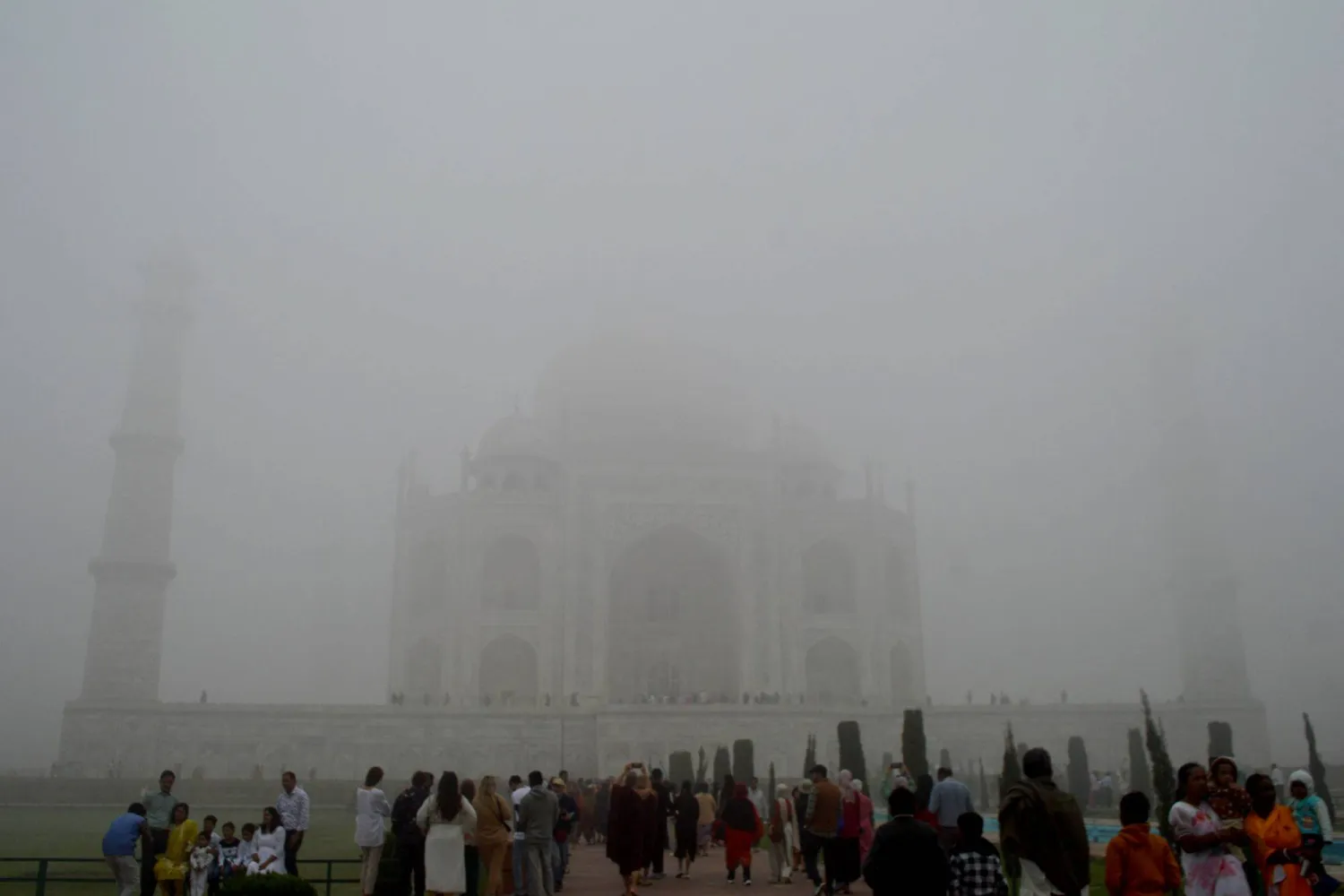India's capital New Delhi ordered all primary schools to cease in-person classes until further notice on Thursday night due to worsening smog in the sprawling megacity.
New Delhi and the surrounding metropolitan area, home to more than 30 million people, consistently tops world rankings for air pollution in winter.
The smog is blamed for thousands of premature deaths each year and is an annual source of misery for the capital's residents, with various piecemeal government initiatives failing to measurably address the problem.
"Due to rising pollution levels, all primary schools in Delhi will be shifting to online classes, until further directions," chief minister Atishi, who goes by one name, announced on social media platform X.
TRENDINGSchools are often shut during the worst weeks of the annual smog crisis, which also prompts numerous other disruptions across the city, AFP reported.
Authorities also regularly impose bans on construction activity and restrict diesel-powered goods trucks from other parts of the country in an effort to alleviate the toxic clouds blanketing the capital.
Grey skies and acrid fumes have made life a misery for New Delhi's inhabitants this week.
Levels of PM2.5 pollutants -- dangerous cancer-causing microparticles that enter the bloodstream through the lungs -- were recorded more than 50 times above the World Health Organization's recommended daily maximum on Wednesday.
New Delhi is covered in acrid smog each year, primarily blamed on stubble burning by farmers elsewhere in India to clear their fields for ploughing, as well as factories and traffic fumes.
Cooler temperatures and slow-moving winds worsen the situation by trapping deadly pollutants each winter, stretching from mid-October until at least January.
India's Supreme Court last month ruled that clean air was a fundamental human right, ordering both the central government and state-level authorities to take action.
But critics say arguments between rival politicians heading neighboring states -- as well as between central and state-level authorities -- have compounded the problem.
Politicians are accused of not wanting to anger key figures in their constituencies, particularly powerful farming groups.
New Delhi authorities have launched several initiatives to tackle pollution, which have done little in practice.
Government trucks are regularly used to spray water to briefly dampen the pollution.
A new scheme unveiled this month to use three small drones to spray water mist was derided by critics as another "band-aid" solution to a public health crisis.
A study in The Lancet medical journal attributed 1.67 million premature deaths to air pollution in the world's most populous country in 2019.
The choking carbon smog across New Delhi came as researchers warned that planet-warming fossil fuel emissions would hit a record high this year, according to new findings from an international network of scientists at the Global Carbon Project.









